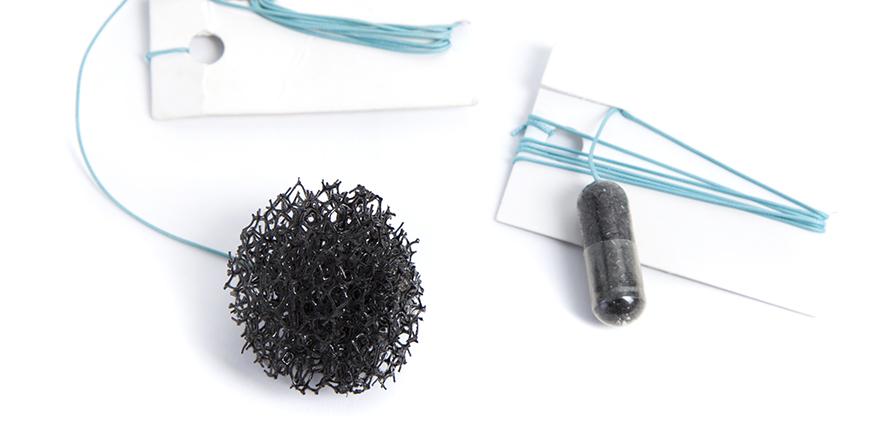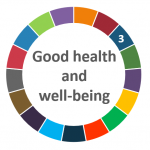
ΑΙhub.org
Artificial intelligence could be used to triage patients suspected at risk of early stage oesophageal cancer

Deep learning techniques can be used to triage suspected cases of Barrett oesophagus, a precursor to oesophageal cancer, potentially leading to faster and earlier diagnoses, say researchers at the University of Cambridge.
When researchers applied the technique to analysing samples obtained using the ‘pill on a string’ diagnostic tool Cytosponge, they found that it was capable of reducing by half pathologists’ workload while matching the accuracy of even experienced pathologists.
Early detection of cancer often leads to better survival because pre-malignant lesions and early stage tumours can be more effectively treated. This is particularly important for oesophageal cancer, the sixth most common cause for cancer-related deaths. Patients usually present at an advanced stage with swallowing difficulties and weight loss. The five-year overall survival can be as low as 13%.
One main subtype of oesophageal cancer is preceded by a condition known as Barrett oesophagus, in which cells in the lining of the oesophagus change shape. Barrett oesophagus occurs in patients with Gastro-oesophageal Reflux Disease (GORD), a digestive disorder where acid and bile from the stomach return into the oesophagus leading to heartburn symptoms. In Western countries, 10-15% of the adult population are affected by GORD and are hence at an increased risk of having Barrett oesophagus.
At present Barrett oesophagus can only be detected by a gastroscopy and tissue biopsy. Researchers at the University of Cambridge have developed a far-less invasive diagnostic tool called the Cystosponge – a ‘pill on a string’ that dissolves in the stomach and which, as it is withdrawn, picks up some cells from the lining of the oesophagus. These cells are then stained using a laboratory marker called TFF3 and can then by examined under a microscope.
Now, in a study published in Nature Medicine, a team at Cambridge has applied deep learning techniques to the sample analysis, stratifying patients into eight triage classes that determine whether a patient sample requires manual review or if automated review would suffice. The algorithms were trained using 4,662 pathology slides from 2,331 patients.
Professor Rebecca Fitzgerald from the MRC Cancer Unit at the University of Cambridge, who developed the Cytosponge and worked with the AI team, said: “Any system that supports clinical decisions needs to balance its performance against workload reduction and potential economic impact. Replacing pathologists entirely could lead to substantial workload reduction and speed up diagnoses, but such an approach would only be viable if the performance remains comparable to that of human experts and there are regulatory hurdles to overcome.”
For the analysis of Cytosponge-TFF3 samples, the triaging approach showed several benefits, substantially reducing workload and matching the sensitivity and specificity of experienced pathologists. Sensitivity is the ‘true positive’ rate – that is, how often a test correctly generates a positive result for people who have Barrett oesophagus. Specificity, on the other hand, measures a test’s ability to correctly generate a negative result for people who don’t have the disease.
The researchers showed that a fully manual review by a pathologist achieves 82% sensitivity and 93% specificity. In a fully automated approach, they observed a sensitivity of 73% and a specificity of 93%. The team was able to demonstrate that using a triage-driven approach, up to two-thirds of cases can be reviewed automatically while achieving a sensitivity of 83% and specificity of 93%. The team estimates that this approach would reduce workload for the pathologists by 57%.
The team were able to build into their algorithm problem-solving techniques applied by pathologists familiar with Cytosponge-TFF3 samples. This meant that the algorithms were interpretable – in other words, a clinician would be able to understand why they had reached a particular decision. This is important for accountability.
Dr Florian Markowetz from the CRUK Cambridge Institute, who led the work on the AI algorithm, said: “We’ve shown that it’s possible to use computer-aided tools to streamline identification of people at risk of Barrett oesophagus. By semi-automating the process, we can reduce the workload by more than half while retaining the accuracy of a skilled pathologist. This could potentially speed up the diagnosis of Barrett oesophagus and, potentially, the identification of those individuals at greatest risk of oesophageal cancer.”
The team say that this triage-driven approach could be applied beyond the Cytosponge to a number of tests for other conditions such as pancreatic cancer, thyroid cancer or salivary gland malignancies.
The research was supported by Cancer Research UK, the Medical Research Council and Cambridge University Hospitals NHS Foundation Trust.
Reference
Triage-driven diagnosis of Barrett’s esophagus for early detection of esophageal adenocarcinoma using deep learning
Marcel Gehrung, Mireia Crispin-Ortuzar, Adam G. Berman, Maria O’Donovan, Rebecca C. Fitzgerald & Florian Markowetz

tags: Focus on good health and well-being, Focus on UN SDGs









